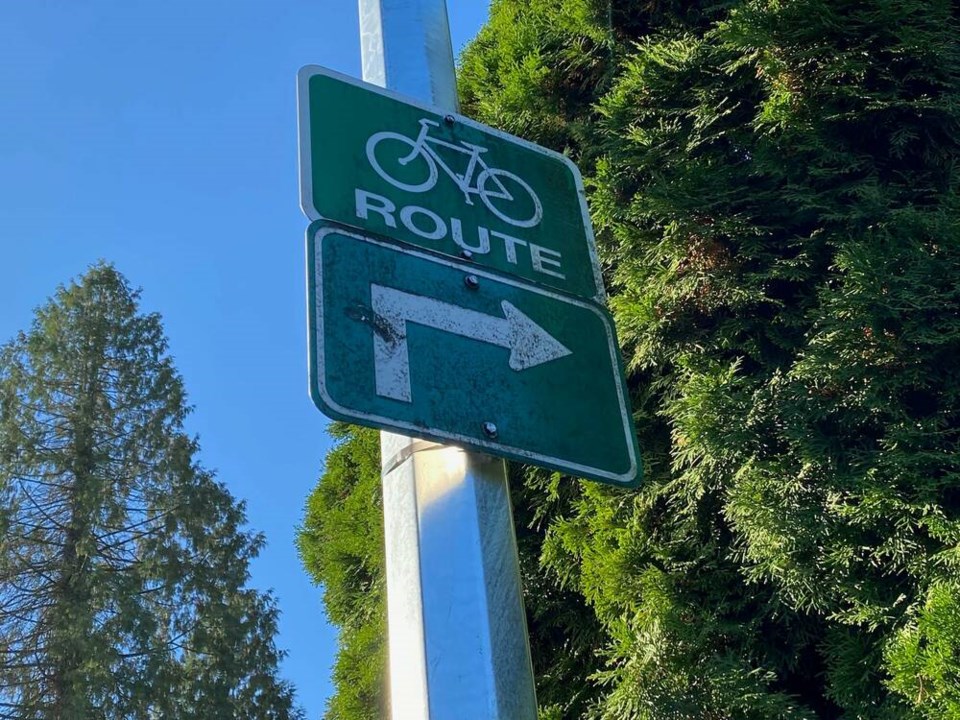Walking and cycling are not just weekend recreational activities, but are viable, beneficial, economical and environmentally friendly modes of transportation.
That’s one of the themes outlined in the City of Delta’s proposed Community Energy and Emissions Plan update, which still must be endorsed by council.
The new plan contains a series of recommendations to address several issues including transportation, buildings, waste, green space and ecosystems.
Council directed staff to update the city’s community greenhouse gas reduction targets within the Official Community Plan (OCP) to be consistent with Intergovernmental Panel on Climate Change targets, specifically, a 45 per cent reduction from 2007 levels by 2030 and net zero emissions by 2050.
While the city has undertaken initiatives, such as Delta’s Electric Vehicle Strategy, Urban Forest Strategy, Cycling Master Plan, Agricultural Plan, the installation of public EV charging stations and upgrades to civic buildings to reduce greenhouse gas emissions, the updated plan contains further measures for infrastructure, policy and public engagement.
The report notes passenger vehicles contribute the largest proportion of Delta’s emissions (37 per cent), costs (34 per cent), and consumption (27 per cent).
Commercial vehicles followed closely in emissions at 31 per cent and costs at 27 per cent, which is unusually high compared to other Metro Vancouver communities, but can be explained by Deltaport being a hub for commercial goods and the BC Ferries operations.
Among other things, key action categories in the plan include encouraging active transportation and transit ridership.
“Delta can design and build well connected, accessible, safe and enjoyable routes, which are already being considered as part of the Downtown Revitalization Plan. This will encourage residents and visitors to choose an active mode of travel such as walking and cycling. Good sidewalks, bike lanes, and trails make active transportation a viable choice when travelling through neighbourhoods, communities, and town centres. The same infrastructure also affords access for those who use mobility aids, such as scooters and wheelchairs,” the report notes.
“Planning for a zero-carbon transportation system requires a paradigm shift. Rather than solve traffic and infrastructure problems by expanding roads or building more of them, communities can support all transportation options and facilitate alternative travel choices that reduce the need for more, or bigger roads. Not only does this reduce transportation-related emissions, but this shift can also result in reduced infrastructure and maintenance costs down the road,” the report adds.
Among the plan’s “aspirational targets” is having 13 commutes per person-year removed through more accessible active transportation, transit and shifts in land use.
Another target would see streets reimagined to prioritize active, public and low carbon transportation options, while new neighbourhoods would be designed to maximize car-free options. New streets would be fully connected via bike paths and transit options, while appropriate facilities for bike storage and e-bike charging would be located in strategic hubs.
Some of the specific measures include updating and developing OCP policies, development permit guidelines and zoning bylaws that focus development on complete, compact centres and transit-oriented corridors. An updated Sidewalk Master Plan would identify gaps in the network and all neighbourhoods would be connected through the implementation of Cycling Master Plan.
The city would also explore the implementation of car-free zones in areas that main community events are held as well as work with TransLink promote transit ridership by offering free transit days.
The city would also expand promotion of Delta’s Seniors Bus as well as explore safe, universal free transit for all students.



